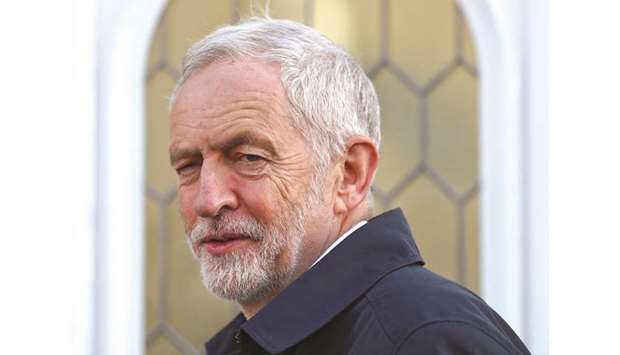Jeremy Corbyn has promised to introduce the biggest ever extension to workers’ rights and create a ministry and government agency should he get into government.
Announcing his envisaged shake-up of Whitehall departments at the TUC Congress in Brighton, the Labour leader pledged to “put power in the hands of workers” not the “born-to-rule establishment” by establishing a ministry for employment rights and a workers’ protection agency if he secures a Labour majority.
A new secretary of state for employment rights would ensure “the voice of working people will be heard at the Cabinet table, exactly as it should be”, he said.
The workers’ protection agency embedded within the new ministry would enforce rights, standards and protections. It would also give powers to inspect workplaces and bring prosecutions and civil proceedings on behalf of workers.
Under the plans, all workers over 16 would be entitled to a statutory “real living wage” of £10 per hour by 2020, while a new civil enforcement system would be established to ensure gender pay commitments were upheld.
The Labour leader said: “We have witnessed a deliberate, decades-long transfer of power away from working people. The consequences are stark for all workers, whether members of a trade union or not. Pay is lower than it was a decade ago in real terms.”
He told delegates too many employers were flouting existing laws and failing to pay the minimum wage.
“We will put a stop to that. We will create a workers’ protection agency with real teeth, including the power to enter workplaces and bring prosecutions on workers’ behalf,” he said.
Other changes to workers’ rights would include a ban on unpaid internships and zero-hours contracts, he said.
Sectoral collective bargaining would be introduced by establishing a councils of worker and employer representatives to negotiate agreements with minimum terms, conditions and standards for the whole of a particular sector.
Corbyn also pledged to repeal the Conservatives’ Trade Union act, which had severely restricted the activity of unions and their ability to organise against bad employers, he said.
Addressing the political turmoil in Westminster which ended on in the early hours of yesterday morning with the proroguing of parliament, Corbyn said he wanted to maintain focus on the real issues affecting workers’ lives.
“Today parliament stands empty, shut down by a prime minister running away from scrutiny. We mustn’t mistake the drama at Westminster for what real politics is about,” he said.
“What truly matters to people isn’t resignations, defections and late night votes in parliament. What truly matters is the reality of their everyday lives – in their community, on the streets, at their workplace.” In a rallying cry to some of his closest allies before an anticipated general election, Corbyn predicted the establishment would come after Labour because they were trying to take on those with vested interests in maintaining the current imbalance in the UK.
“We’re going after the tax avoiders. We’re going after the bad bosses. We’re going after the dodgy landlords. We’re going after the big polluters destroying our climate. Because we know whose side we’re on,” he concluded before a one-minute standing ovation.
In a speech to the TUC yesterday afternoon, fleshing out the plans in more detail, the shadow business minister, Laura Pidcock, said: “Under Labour, the voice of working people will be heard at the Cabinet table, exactly as it should be.
“Despite working some of the longest hours in Europe, millions of people in this country – one of the richest in the history of the world – cannot afford to make ends meet and are living in poverty.
“It is sickening that the 14.3mn people currently living in poverty includes 9mn living in families where one or more adults is working.”
Union leaders welcomed Corbyn’s latest proposals. Dave Prentis, the general secretary at Unison, the UK’s biggest union, said: “It’s become far too easy for unscrupulous bosses to treat their staff unfairly, safe in the knowledge their bad behaviour will never be challenged in the courts.”
Mick Whelan, the general secretary of Aslef, the train drivers’ union, said: “This is a turning point in industrial relations in Britain. Successive Tory governments have stripped away the rights of working people in a bid to take us back to the 19th century when unscrupulous mill owners could hire and fire at will.” About 5mn workers in the UK are represented by union delegates attending the TUC Congress.

Jeremy Corbyn
